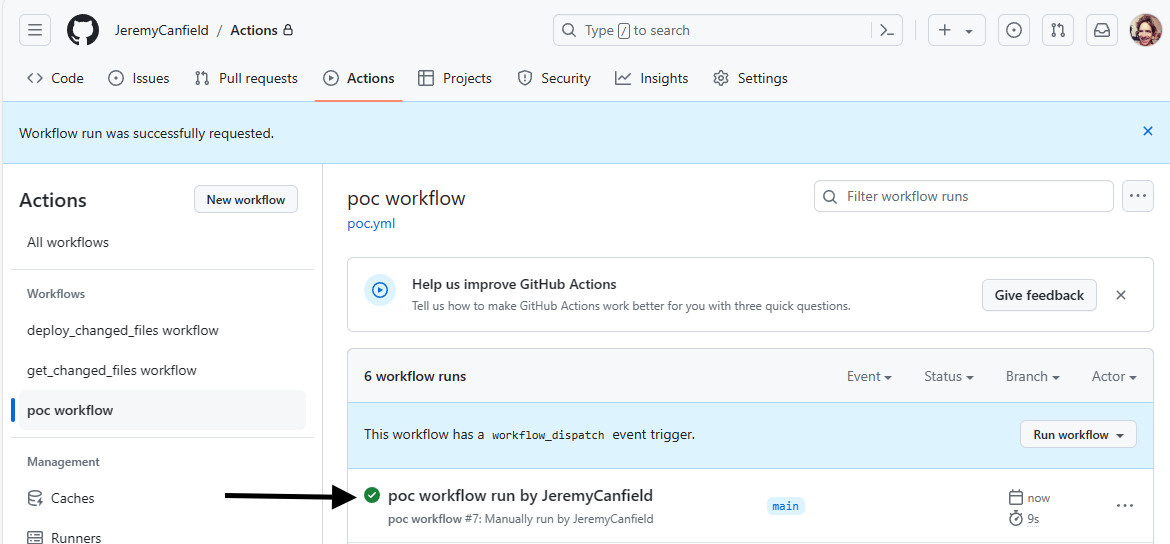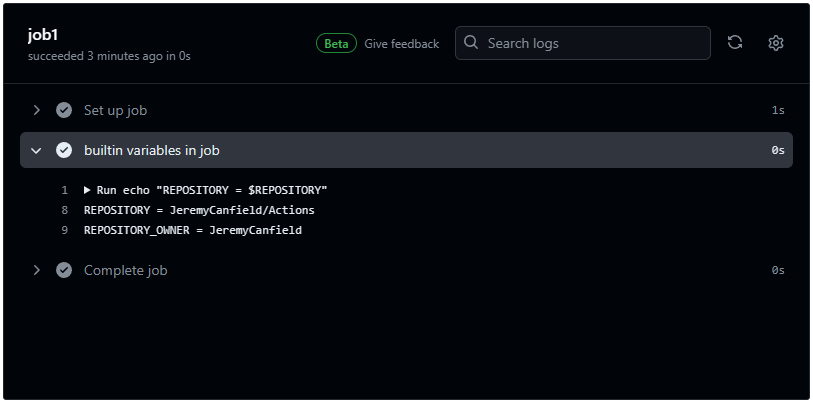
GitHub Actions can be used to do something whenever something happens in one of your GitHub repositories. If you are not familiar with GitHub Actions, check out my article Getting Started with GitHub Actions.
If using a Linux runner, such as Ubuntu, run can be used to issue the echo command to create variables that contain the default GitHub Environment Variables. https://docs.github.com/en/actions/learn-github-actions/variables has the various default Environment Variables that can be used.
name: poc workflow
run-name: ${{ github.workflow }} run by ${{ github.actor }}
on:
workflow_dispatch:
jobs:
job1:
runs-on: ubuntu-latest
steps:
- name: builtin variables in job ${{ github.job }}
run: |
echo "REPOSITORY = $REPOSITORY"
echo "REPOSITORY_OWNER = $REPOSITORY_OWNER"
env:
REPOSITORY: ${{ github.repository }}
REPOSITORY_OWNER: ${{ github.repository_owner }}
Or like this, with the environment variables set outside of jobs.
name: poc workflow
run-name: ${{ github.workflow }} run by ${{ github.actor }}
on:
workflow_dispatch:
env:
REPOSITORY: ${{ github.repository }}
REPOSITORY_NAME: ${{ github.event.repository.name }}
REPOSITORY_OWNER: ${{ github.repository_owner }}
jobs:
job1:
runs-on: ubuntu-latest
steps:
- name: REPOSITORY
run: |
echo $REPOSITORY
- name: REPOSITORY_NAME
run: |
echo $REPOSITORY_NAME
- name: REPOSITORY_OWNER
run: |
echo $REPOSITORY_OWNER
Or like this, using GITHUB_OUTPUT.
name: poc workflow
run-name: ${{ github.workflow }} run by ${{ github.actor }}
on:
workflow_dispatch:
jobs:
job1:
runs-on: ubuntu-latest
steps:
- name: set repository
id: repo
run: echo "repository=${{ github.repository }}" >> $GITHUB_OUTPUT
- name: get repository
run: |
echo ${{ steps.repo.outputs.repository}}
In this example, when looking at the workflow run, since run-name: ${{ github.workflow }} run by ${{ github.actor }} was used, the run should include the name of the workflow and the user that ran the workflow.

And the job output should contain something like this.

Did you find this article helpful?
If so, consider buying me a coffee over at 